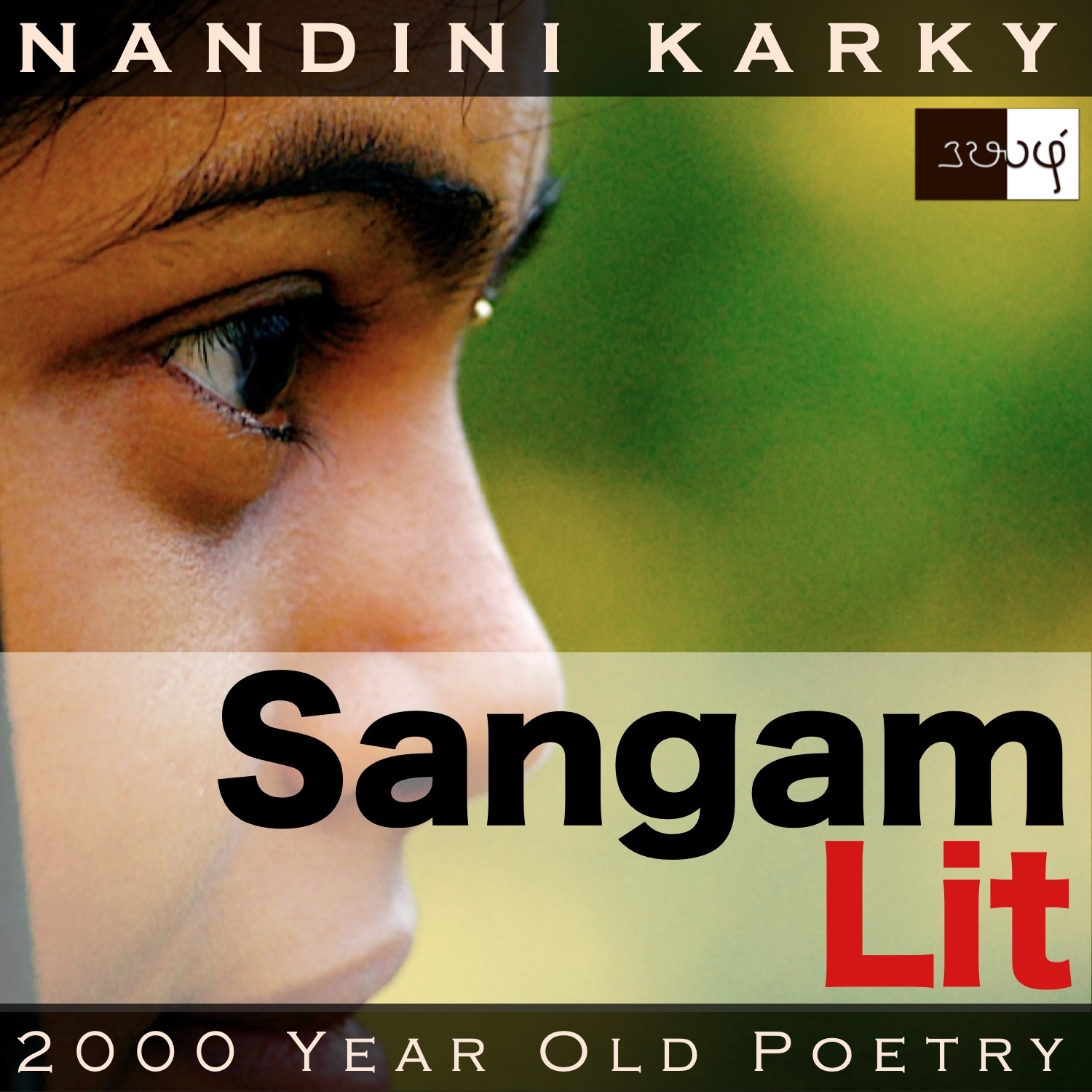Podcast: Play in new window | Download
Subscribe: Apple Podcasts | Spotify | Amazon Music | Android | iHeartRadio | TuneIn | RSS | More

In this episode, we perceive the fertility of a farming village and the fortitude in a loyal heart, as portrayed in Sangam Literary work, Natrinai 400, penned by Alangudi Vanganaar. The verse is situated in the agricultural regions of ‘Marutham’ and speaks in the voice of a courtesan to the man, expressing how indispensable he is, to her life.
வாழை மென் தோடு வார்புஉறுபு ஊக்கும்
நெல் விளை கழனி நேர் கண் செறுவின்,
அரிவனர் இட்ட சூட்டு அயல், பெரிய
இருஞ் சுவல் வாளை பிறழும் ஊர!
நினின்று அமைகுவென்ஆயின், இவண் நின்று,
இன்னா நோக்கமொடு எவன் பிழைப்பு உண்டோ?
மறம் கெழு சோழர் உறந்தை அவையத்து,
அறம் கெட அறியாதாங்கு, சிறந்த
கேண்மையொடு அளைஇ, நீயே
கெடு அறியாய் என் நெஞ்சத்தானே.
Opening with the words ‘வாழை மென் தோடு’, the verse sketches for us ‘the gentle flower of the plantain tree’, which delights people to this day, in many a healthy and tasty South Indian dish. The phrase ‘நெல் விளை கழனி’ meaning ‘paddy fields’ captures the quintessential element of Asian villages, those lush green fields, with little shoots swaying in a field of water. Words of joy that would spring to our lips are captured in the verse in ‘நேர் கண் செறுவின்’ meaning ‘a field that’s delightful to the eyes’. And yet, a paddy field is not a thing of leisure, for it demands the toil of many, and these valiant folk are mentioned as the ‘அரிவனர்’ or ‘reapers’ here. A fish that we have oft-encountered in Natrinai poems yet again leaps before us in ‘பெரிய இருஞ் சுவல் வாளை’ or ‘the huge dark-backed scabbard fish’. Next, it’s history’s turn to greet us in ‘மறம் கெழு சோழர் உறந்தை’ meaning ‘Uranthai, in the domain of the valiant Cholas’, referring to the current-day town of ‘Uraiyur’ in ‘Tiruchirapalli’ district of Tamilnadu, which was the seat of the early Cholas of the Sangam period. The verse ends with ‘கெடு அறியாய் என் நெஞ்சத்தானே’ meaning ‘you will not see an end in my heart’ and intrigues our curiosity.
As is the case in many poems from the agricultural domain, the man who was leading a married life with the lady, takes to keeping the company of a courtesan. After a while, the courtesan suspects that the man is about to leave her for another courtesan. At this time, she turns to the man and says, “Paddy stalks caresses the gentle plantain flower hanging beneath the leaves and makes it sway in those farmland fields, so pleasing to the eye. Near the bundles of paddy cut and thrown aside by reapers, a huge dark-backed scabbard fish leaps. Such is your fertile town, O lord! If I am to live without you, I can only be here with a suffering mind for there’s nothing for me thereafter. You are the one who has become one with me through our deep bond. Akin to how the ‘Uranthai’ court of the courageous Cholas knows not how to be without justice, my heart knows not how to be without you!” With these words, the courtesan conveys the special place in her heart for the man and a subtle conviction that the man would be unswayed by others, who attempt to take him away from her.
Akin to the complicated lifestyle that agriculture demands, relationships in this region turn complex too! Let us now unravel these complexities and reap what we can. The courtesan zooms on to a corner of a rich paddy field, where the stalks can be seen touching and moving the flowers of a plantain tree that stands nearby. A term to indicate how tall these paddy stalks were, hinting at the prosperity they would endow. She qualifies the sight of these fields as a joy to the observer, a thing which would make a modern traveller nod in agreement. The workers in the field however seem intent only on their job of cutting these stalks and heaping the bundles of paddy. Then, the courtesan points to a scabbard fish that seems to be frolicking near these paddy bundles. With these scenes, she concludes the description of that rich man’s village.
From the real treats of the farming village, the courtesan turns to the abstract and tells him that a situation, wherein she had to live without him, would be one of deep suffering for her. The next transition is in the direction of history and the courtesan talks about the court of the Cholas and mentions how it was impossible for justice to be absent there, and likewise equates it to how it is impossible for the man to be absent from her heart. In that scene of the leaping scabbard fish, which minds not the chopping of paddy stalks so close, the courtesan places a metaphor for how although it may appear that her relationship with the man has been severed, in her heart, she leaps with a belief that the man would abide by her. No matter the alien sheaths that may cover this song, at the core, is an expression of unswerving love and indefeasible hope, just the ingredients needed for a better tomorrow!




தலைவணங்குகிறேன்